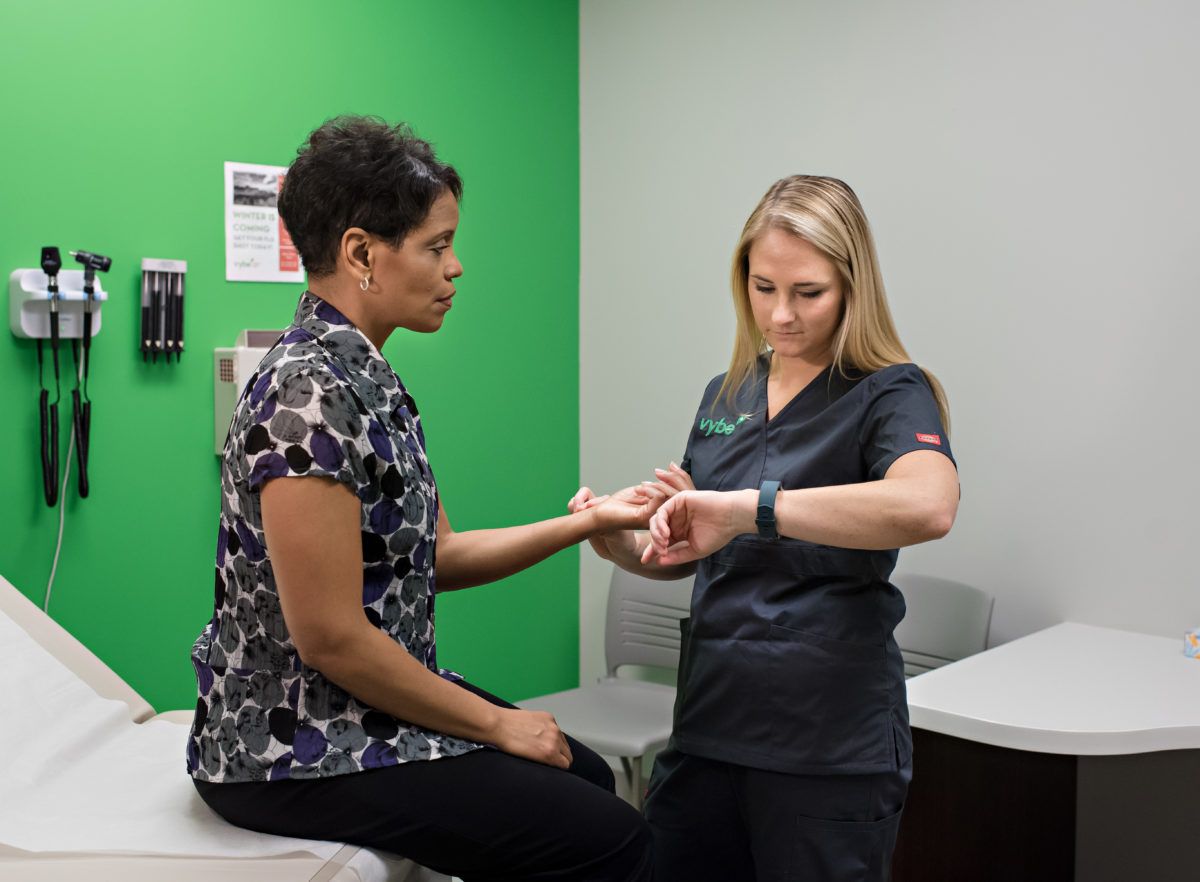May is National High Blood Pressure Education Month. High blood pressure, also known as hypertension, is a serious issue affecting 75 million (1 in 3) American adults, according to the Centers for Disease Control and Prevention (CDC). The stats alone are enough to make one’s blood pressure rise, and the serious complications that stem from hypertension are even more concerning. The risk for heart disease and stroke increases exponentially in those with hypertension, these being the first and third top causes of death in the U.S. respectively, as per the CDC.
Scary? Most certainly. There aren’t always obvious signs that one’s blood pressure is through the roof. That is why it’s so important to get your blood pressure checked and to keep it in check with risk-reducing measures which we’ll get to below. Learn more about what the normal and high numbers are so you’re familiar with the guidelines, which were updated by the American Heart Association last year.
The Risks
There are certain risk factors that make some people more susceptible to experiencing hypertension. Some are due to lifestyle choices, including overindulgence of food and alcohol and smoking, while others can’t be changed, like age and race. But no matter the cause, your best prevention game plan is to know about your health and heredity, and to take control of habits that may be contributing to hypertension. These common risks* are all connected to high blood pressure; see which ones you check off and make the necessary changes, if possible.
- Age – The risk of hypertension increases with age. Up until age 64, men are more likely to experience hypertension. Once 65, women are more likely to have it. So, as you get older, keep a closer eye on your blood pressure by getting regular physical exams and taking care of your overall health.
- Race – African Americans are more likely to develop high blood pressure, and at an earlier age, than Caucasians. Complications from hypertension are also more common among African Americans, making it even more important for regular exams and lifestyle improvements if necessary.
- Family – You can inherit more than your rich brown eyes from your parents. High blood pressure is an unfortunate branch of the family tree. If you have a history of hypertension in your family, it’s something you should share with your primary care provider.
- Weight – Maintaining weight within a healthy range is important on a number of levels. Being overweight or obese can put extra pressure on the circulatory system, which may cause high blood pressure. It is important to work with your physician or another medical health professional to maintain a healthy weight.
- Sedentary Lifestyle – Being active leads to a lower resting heart rate and therefore allows your heart to work more efficiently. Move more and you’ll lower your risk while reaping the rewards of exercise’s other body benefits.
- Tobacco Use – Every time you take a puff of a cigarette, your blood pressure rises. And over time, the artery walls become compromised. There’s no better time to quit than today.
- Low Potassium, High Sodium – Too little potassium means your body cannot regulate the blood’s sodium levels. When there’s too much sodium in the system, you can retain fluid, causing blood pressure to rise. Lay off the salt and eat more bananas.
- Heavy Alcohol Consumption – A glass of wine here and there can actually be healthful, but too much of a good thing can turn into something bad. Limit drinking to one drink per day for women and two for men to keep blood pressure in a healthy range.
- Stress – You can literally worry yourself sick. High-stress levels are correlated to hypertension. Try to “chill” when you feel stress surfacing. Deep breathing, yoga, or even a “time out” can calm you down dramatically.
During National High Blood Pressure Education Month make hypertension your main focus and follow through all year long. You can have your blood pressure checked at a vybe urgent care center closest to you. Remember, even if your blood pressure is within a healthy range, it is still advisable to follow healthy guidelines and practice positive habits. Reduce your risks and do your best to keep hypertension from harming your health.
FIND YOUR VYBE
